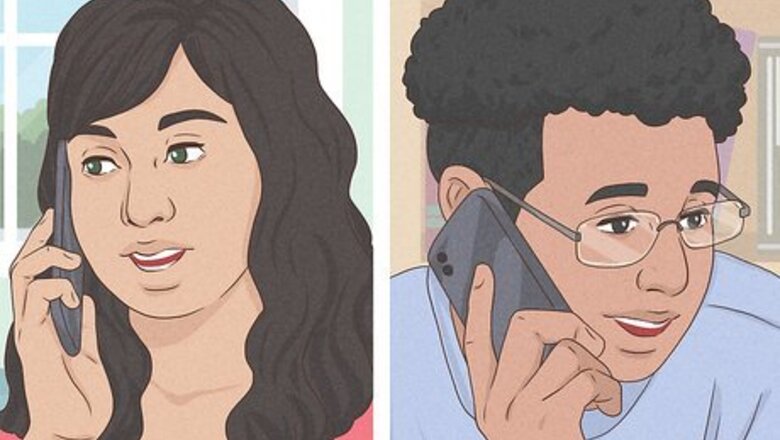
views
Talk to them as soon as possible.
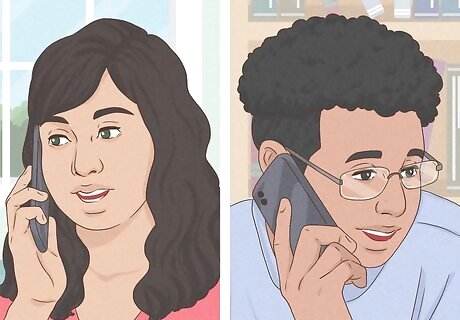
Try not to wait around or drag it out for too long. When you know you aren’t interested in the person you’re seeing anymore, ask to meet up with them. They’ll appreciate you talking it out with them, and it will leave you both free to move onto other people. It’s not super fair to either of you to keep seeing each other if you know it’s not going to work out. Sometimes, the only reason why you don’t want to see someone anymore is because you just aren’t feeling it, and that’s okay.
Meet up face to face.
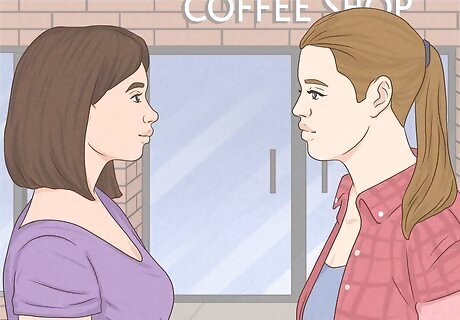
It’s the kindest way to let someone down gently. While a text might seem easier, it’s much better if you two can meet up in person somewhere. They’ll get the closure they need, and you can explain a little better about why you don’t want to see them anymore. If you’ve only been on a single date with this person, then a text is probably fine. However, if you’ve seen each other a couple of times, it’s polite to talk to them face to face.
Head to a neutral location.

Go to a coffee shop or out for drinks. Try to pick a shorter activity that you can leave quickly, and don’t go to either of your homes. Invite the person to meet up with you within the next couple of days. Try not to go out to dinner, as that can drag your conversation on and be a little awkward. Talking in a semi-public place also ensures that you can both leave quickly if you want to.
Be honest, but be kind.
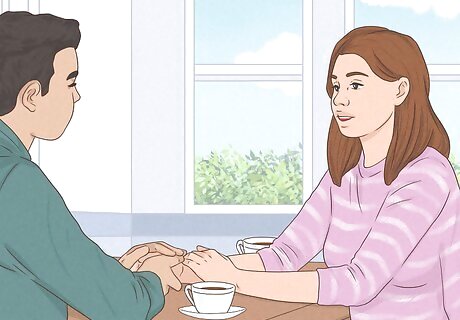
Tell them clearly that you just don’t think it’s working out. You don’t have to be mean about it, but you shouldn’t leave any room for question, either. Tell them the real reason you don’t want to see them anymore, unless it’s something that could be hurtful. For instance, you might say, “You’re a really nice person, but I just don’t see us working out long-term. I really wish you luck on your search, though!” Or, “I just can’t commit to a relationship right now, and it’s not fair to you. I’m splitting myself between my work and spending time with you, and I just can’t do that anymore.”
Use “I” statements.
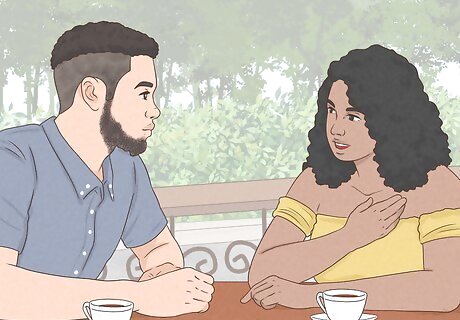
Make sure the other person doesn't feel at fault. Instead of saying something like, “You were taking up too much of my time,” try, “I’ve been feeling overwhelmed by trying to juggle working and hanging out with you.” That way, the responsibility falls on you, not them. It’s also a good idea to throw in some positives, too. Tell the other person how much you enjoyed spending time with them before you jump into why you can’t be together.
Answer any questions they may have.
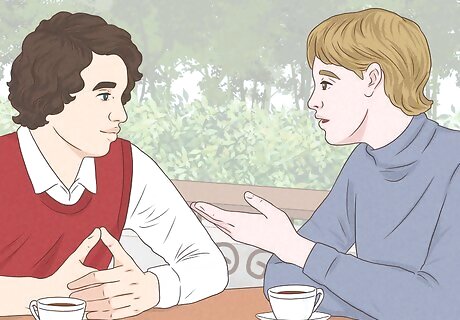
Listen to what the other person has to say. Walk through any questions they might have, and try to answer them as nicely as possible. If this came out of the blue, they might be confused about your reasoning or why you’re doing this now. Oftentimes, people will say something like, “I don’t understand, I thought we had a good thing going.” You might reply by saying, “We did, but I just couldn’t see this lasting long-term.”
Don’t offer to be friends.
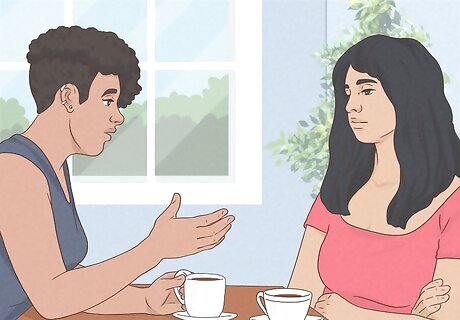
It’s an empty gesture that doesn’t mean much. While it might sound nice (and it feels nice to say), promising a friendship in the future can actually do more harm than good. Cut things off clearly without any room for question. If the other person asks if you two can still be friends, you could say something like, “In the future, maybe. Right now, I really want to focus on myself.”
Leave as soon as you can.
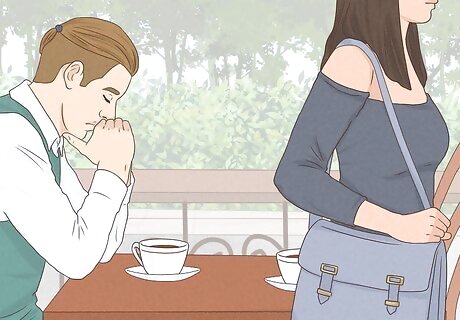
There’s no need to drag out the conversation. As soon as you feel like you’ve wrapped things up, go ahead and leave. This will let the other person work through their own emotions without you there to watch them. It's a good idea to have plans afterward, like meeting up with a friend. That way, you'll have someone you can talk to about what happened, but you'll also have a built-in excuse when it's time to leave. This is especially important if you two met up at a bar (or anywhere that you can get drinks). The other person might be hoping that you two can have one last hookup before you go, which probably isn’t a good idea.
Cut contact with them.
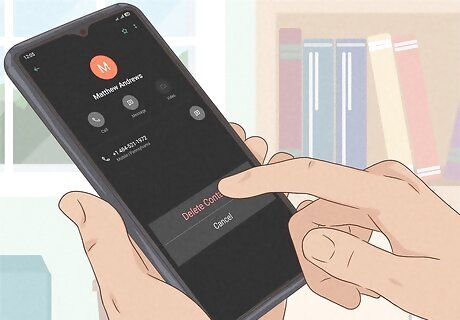
Reaching out to them can send mixed signals. Don’t text, call, or reach out on social media once you’ve broken up with them. Even if you want to check in or be friends with them, it’s much kinder to leave them alone. If they reach out to you, it’s probably best not to respond. And if they have a negative reaction (as in, they act rude or angry in response), don't feel like you owe them any further communication. Reader Poll: We asked 607 wikiHow readers, and 63% agreed that if a person reacts negatively to your rejection of them, it’s 100% okay to be firm in your decision and move on from the situation. [Take Poll]



















Comments
0 comment